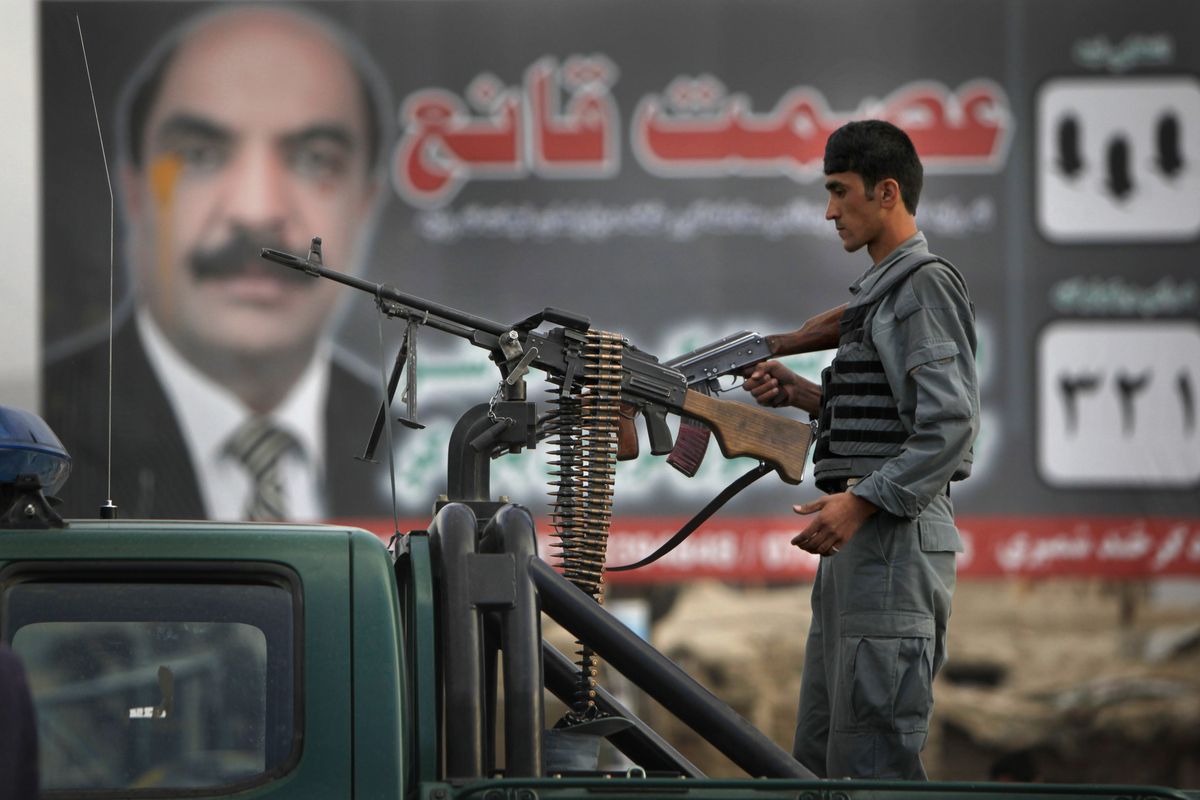Afghans begin voting
Despite threats, most poll stations see no violence

KABUL, Afghanistan – Polling stations formally opened for voting in Afghanistan’s parliamentary election today, though scattered rocket attacks struck in the early morning and Taliban insurgents managed to block at least a couple of stations from opening.
The vote – the first since a fraud-marred presidential poll last year – is a test of the Afghan government’s ability to conduct a safe and fair vote after months of pledges of reform.
The number of attacks and the willingness of people to turn out at the polls will also be a measure of the strength of the insurgency, which vowed to disrupt the vote.
A rocket slammed into the Afghan capital before dawn, while another hit in Kandahar city in the south and three struck the eastern city of Jalalabad, officials said. No casualties were reported.
The rockets were an apparent warning from insurgents who have warned on leaflets and through rumors spread through villages that those who cast ballots and those working the polls should be prepared to be attacked.
About 2,500 candidates are vying for 249 seats in the parliament. Observers have said they expect the vote in a country where much of country is an active war zone to be far from perfect, but hopefully accepted by the Afghan people as legitimate.
In Nangarhar’s troubled Surkh Rud district, the Taliban blocked two voting centers from opening, said a resident, Kasim, who uses one name like many Afghans. Taliban were patrolling the area to prevent residents from going elsewhere to vote, he said.
In a southern neighborhood of Kabul, a small roadside bomb exploded near a voting center some 40 minutes before opening, injuring no one, local residents said. Voting was delayed at the site in Dah Dana because of the blast, election officials said.
People were complaining.
“I have taken the risk to come and vote, but they are wasting our time,” said Ahmad Shakib, 22, a university student. “They are telling us to wait for one hour because of the explosion. This explosion seems to be a very small. We want to cast our vote, and choose our representatives.”
“I wanted to be the first woman to vote at this polling station and that’s why I came early, but unfortunately there is this delay,” said a woman who gave only her first name, Shamsya. “I wish I could vote first, but now here are other women here.”
Despite the violence and threats, many voting centers opened on schedule and without incident.
In Kandahar, a Taliban stronghold in the south, voters ventured out of their homes and headed to the polls, a few members of one family at a time. Before voting began, the city was hit by a remote-control bomb and a rocket, but neither caused any injuries, officials said.
Vehicles without special election passes were banned from the streets. Law enforcement, intelligence and government officials were monitoring various parts of Kandahar province via satellite television hookups from the governor’s compound.
The rocket launched in Kabul landed in the yard of Afghanistan’s state-owned television station, a couple of blocks from the presidential palace, NATO headquarters and the U.S. Embassy, Afghan police officer Mohammad Abrahim said.
On the eve of the balloting, the head of a voting center in southern Helmand province was killed when his vehicle struck a roadside bomb – a reminder that the insurgent group usually makes good on its threats. At least 24 people have been killed in election-related violence preceding the vote, including four candidates, according to observers.
The Afghan parliament is relatively weak so the outcome of the races is unlikely to change the workings of the government. Voters tend to select candidates of the same ethnic group and are often motivated mostly by a desire for patronage jobs or federal funds for a road or a school in their district.